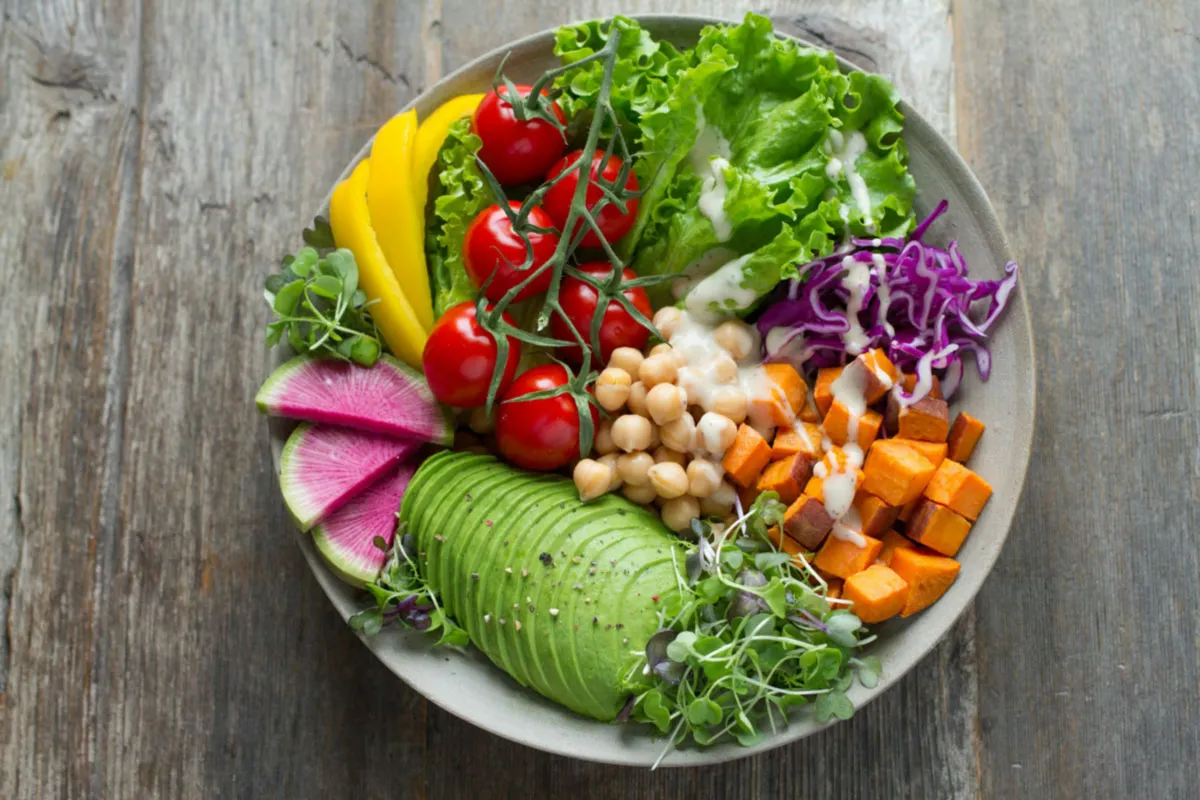
In the post-pandemic era, there’s a growing awareness of health and wellness, particularly among young people. They are not only seeking delicious food but also nutritious and healthy options with unique textures and trendy presentations. This shift has led to the rising popularity of plant-based foods like plant milk, plant meat, and plant eggs, which are now staples in many shopping carts. But what exactly is a plant-based diet, and why has it become so popular?
Plant-Based Diet ≠ Vegetarianism
A plant-based diet focuses on foods derived primarily from plants. This includes not just fruits and vegetables, but also nuts, seeds, oils, whole grains, legumes, and beans. The term “plant-based” often leads people to think it’s the same as vegetarianism, but there are key differences.
Jaclyn London, a registered dietitian with WeightWatchers, explains, “While a plant-based diet prioritizes plant foods, it doesn’t necessarily exclude animal products. It’s about focusing on more plant-based foods—more vegetables, fruits, whole grains, nuts, seeds, and plant oils—with fewer animal products for a balanced diet.”
Simon Hill, founder of the plant-based nutrition brand eimele, supports this view. “Plant-based eating doesn’t mean you have to be vegetarian. It’s about incorporating a variety of plant foods into your diet to promote health and sustainability.”
Unlike strict vegetarians who avoid all animal products, plant-based eaters may choose to consume small amounts of animal products while emphasizing the intake of plant-derived foods for better health.

Why Plant-Based is So Popular: The Truth from Nutrition Experts
The plant-based diet trend has been gaining momentum globally, supported by endorsements from celebrities and influencers, and creating a booming market.
Innova Market Insights, a leading market research company, has consistently listed “plant-based” among the top 10 trends in the global food and beverage industry. The year 2020 marked a significant rise in the popularity of plant-based foods.
Here’s why plant-based diets have taken off:
Health Consciousness Drives New Consumer Choices
The surge in plant-based diets reflects a broader recognition of natural, healthy, environmentally friendly, and low-carbon lifestyles. Many see it as a fashionable way to live healthier lives.
Young people, facing fast-paced lifestyles and high stress levels, often struggle with sleep issues, digestive problems, hair loss, and poor skin. While they may not be able to change their stressful environments, they seek healthier dietary habits to improve their well-being.
Many young individuals are looking for convenient, effortless ways to support their health. This shift from merely controlling calorie intake to focusing on nutritional supplements has made plant-based foods a preferred choice for their natural and health-boosting properties.
Health Benefits of Plant-Based Diets
Numerous studies highlight the nutritional value and health benefits of plant-based diets. A study published in the Journal of the American Medical Association (JAMA) in 2017 found that reducing animal protein intake by just 3% and replacing it with plant protein can lower the risk of death by 19%.
Plant-based diets provide essential proteins, fats, carbohydrates, minerals, and are rich in dietary fiber, water-soluble vitamins, antioxidants, and other bioactive compounds. They are low in calories, saturated fats, cholesterol, and free from antibiotics, helping to maintain a healthy weight and reduce the risk of diabetes, heart disease, and certain cancers.
As a result, more nutritionists and doctors advocate for a plant-based diet. Simon Hill’s brand eimele, for example, focuses on “plant-based nutrition solutions” aimed at promoting a healthier lifestyle and supporting low-carbon environmental goals.

One of their products, the “eimele Green Powder,” epitomizes the benefits of plant-based nutrition. It features a unique “triple support formula” packed with soluble and insoluble fibers, flavonoids, prebiotics, pectins, and 62 different nutrients. Ingredients like turmeric, artichoke, dandelion leaves support liver health; cherry juice, parsley, asparagus support kidney health; and whole orange powder, probiotics, and marine magnesium support gut health. This combination improves overall health through the synergistic function of the liver, kidneys, and intestines.
Additionally, “eimele Green Powder” helps address the common issue of inadequate fruit and vegetable intake, providing a rich array of vitamins, trace elements, and minerals to enhance vitality and fill nutritional gaps.
Conclusion
Plant-based diets are more than just a trend; they represent a sustainable, health-conscious lifestyle. With growing evidence of their benefits and the convenience they offer, it’s no wonder they are gaining popularity. By focusing on plant-based nutrition, you can improve your health and contribute to a more sustainable world.

